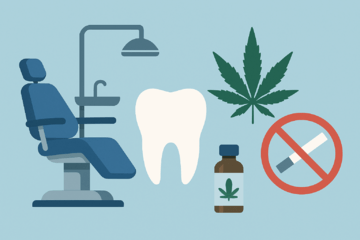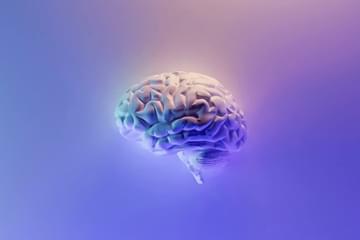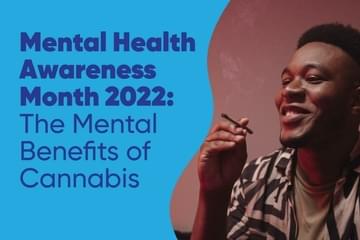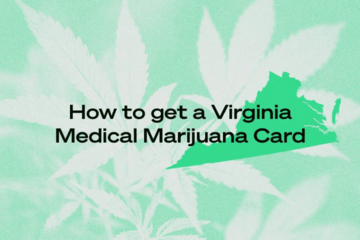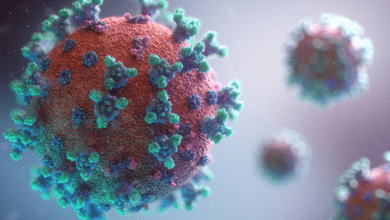
CBGa & CBDa: The Cannabis Compounds Believed to Fight COVID-19
Published on 4/17/22
In mid-January 2022, a study suggested that certain cannabis compounds prevent COVID-19 and its variants. While THC is the most common compound associated with cannabis, the compounds that reportedly prevent COVID-19 are CBGa and CBDa. What did the report claim, and how is it different than other myths surrounding smoking weed and preventing COVID-19? What are CBGa and CBDa? Here's what you need to know.
CBGa and CBDa Explained
First and foremost, what is CBGa, and what is CBDa? Both of these compounds are cannabinoid acids, of which dozens are found within cannabis (both hemp and marijuana plants), including tetrahydrocannabinol acid (THCa), cannabichromenenic acid (CBCa). CBGa stands for cannabigerolic acid, and CBDa stands for cannabidiol acid - both are the initial forms of their cannabinoid counterparts - CBD and CBG - which are created when CBDa and CBGa are decarboxylated via the application of intense heat, pressure, and/or light. The difference between CBDa vs. CBD is a slightly different chemical makeup with an extra carboxyl group. Neither of these cannabinoid acids will get you high, although they do provide various medical benefits, not including their newest potential as a deterrent for COVID-19 and its variants.
Studies so far suggest that CBGa cannabinoid acid has antioxidative and antibacterial properties, along with inhibiting oxidative stress and even killing colon cancer cells. CBDa benefits, so far, are thought to include highly effective treatment of depression, nausea, and side effects associated with cancer treatment. To add to this list, both CBGa and CBDa cannabinoid acids are being researched as potential COVID-19 deterrents.
The COVID-19 & Cannabinoids Study
 Mont Kush
Mont Kush"Cannabinoids Block Cellular Entry of SARS-CoV-2 and the Emerging Variants" was published on January 10, 2022, in the Journal of Natural Products. Its team lead, Dr. Richard B. van Breeman, is from the Linus Pauling Institute at Oregon State University. The study is based on the acknowledgment that molecular agents, along with a vaccine, are needed to treat and/or prevent infections by COVID-19 and its variants. It was found that CBGa and CBDa have high affinities for the spike glycoprotein of the SARS-CoV-2 virus, which is what the virus uses to attach and enter a healthy cell. CBGa and CBDa are molecular agents that bind to COVID-19 spike glycoproteins, reducing their capacity to attach to and infiltrate the body's cells. Other cannabinoids, including THC, CBD, and CBC, showed a negligible affinity for the spike proteins, meaning they are unable to combat the initial entry of COVID-19 into a cell.
The study found that 50% of COVID-19 viruses can be successfully blocked with clinically achievable concentrations of these cannabinoid acids. It also found that CBGa and CBDa successfully blocked the alpha and beta variants of COVID-19, suggesting that they may be implemented as a treatment for other variants that arise in the future. The study's final position was that extensive use of these cannabinoids alongside vaccination is likely to reduce COVID-19's capacity to survive and spread.
COVID-19 Prevention Myths
Since the initial breakout of COVID-19, there have been countless false claims of remedies and cures for the virus. The most famous is Donald Trump's endorsement of hydroxychloroquine as a potential cure, which was immediately denied by the medical and scientific communities. Other COVID-19 cure myths that have either been debunked or found unproven include drinking warm water to rinse COVID-19 from the mouth, taking hot baths or using saline rinses to kill the virus, using supplements like vitamins C and D (which are helpful for boosting your immune system, but not found to protect against the coronavirus),
There have also been myths that propagate marijuana as a cure for COVID-19. The initial myth began at the beginning of the US coronavirus outbreak in March 2020, when an image of a news report claiming smoking weed kills COVID-19 went viral on social media. To combat such myths, the World Health Organization (WHO) specifically listed smoking as something not effective against the coronavirus. The newest research also debunks this myth since the cannabinoid acids that prevent COVID-19 from attaching to a cell are not consumed when smoking cannabis (they get decarboxylated).
More Research on Cannabinoids and COVID-19
 Unsplash
UnsplashOther studies legitimize the theory that certain cannabinoids prevent and help treat COVID-19. One study, published in Science Advances in January 2022, found a significant correlation between patients given CBD and lower COVID-19 infection rates. Their observation was that CBD up-regulates stress responses and interferon signaling pathways, resulting in the body more aggressively attacking the incoming SARS-CoV-2 virus. CBD was tested as minimally effective at inhibiting the initial entry of the virus through affinity to spike proteins - this is in agreement with the findings of the study on the effectiveness of CBDa and CBGa.
While this study looks specifically at CBD and not CBGa and CBDa, it still indicates that cannabinoids help the body fight COVID-19 in various ways when accompanied by the vaccine. At this time, however, these studies also note that cannabis not explicitly prescribed for COVID-19 should not be used as a treatment. More tests are needed, although the initial findings are promising.
Have you used CBGa or CBDa to effectively prevent contracting COVID-19? What do you think about this study and the science behind it? Let us know in the comments below!









